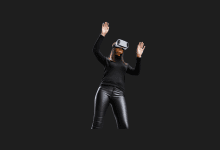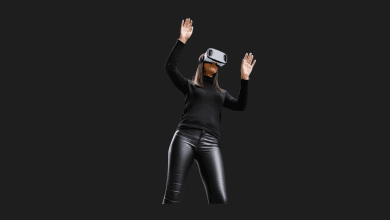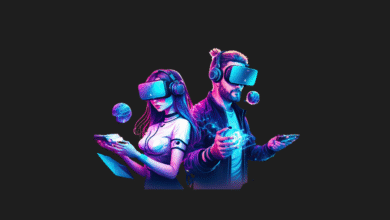Debunking Misconceptions About Metaverse
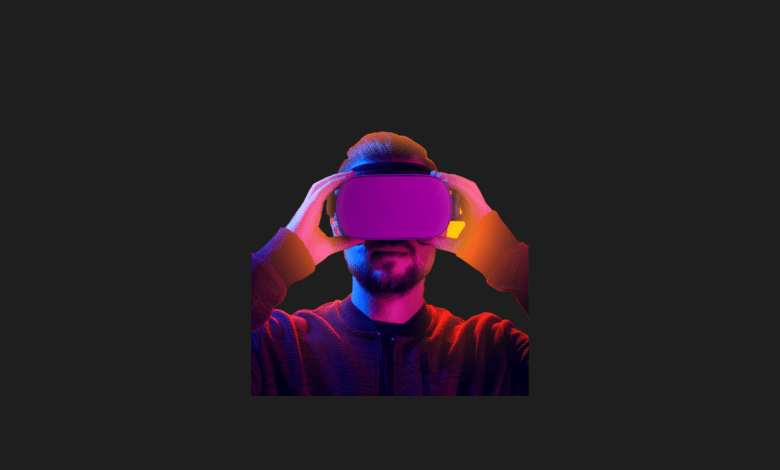
The Metaverse, a term now woven into our everyday language, emerges from the combination of “Meta” and “Universe.” It represents a digital space where virtual beings parallel their human creators. This term also refers to the blend of various technological spheres, such as social media, augmented reality (AR), virtual reality (VR), online gaming, and digital currencies, creating a comprehensive digital environment.
This advanced technology facilitates virtual human interactions, creating a digital universe where users can socialize, shop, participate in various activities, or explore new educational opportunities.
The origin of the word “metaverse” is credited to author Neal Stephenson. In his 1992 science fiction novel, “Snow Crash,” he depicted a world where individuals, represented as avatars, gather in various virtual reality environments, including complex 3D structures.
Contrary to some common misunderstandings, the Metaverse is not about a single tech company’s effort to dominate digital existence. Rather, it is a rich fusion of 3D graphics, AI, VR, mixed reality (MR), and blockchain technology, linking it to real-world economics. This allows users to create their own universes with unique rules and possibilities. Leading examples of the Metaverse include Decentraland, The Sandbox, Cryptovoxels, and Somnium Space, which feature VR enhancements.
Both established and new game developers are creating alternate realities with detailed landscapes, engaging gameplay, and meticulously designed characters. Users have the freedom to choose which digital universe to dive into.
Fundamentally, the Metaverse is already a reality in various online gaming platforms like Minecraft, Fortnite, and Roblox. Even tools like Microsoft Teams or Zoom could be considered forms of the Metaverse, where virtual gatherings take place and interact. However, the broader vision of the Metaverse seeks to connect people through an array of digital experiences, from virtual travels to music festivals and conferences.
The conversation around the Metaverse is currently vibrant, driven by major companies like Facebook and Microsoft, who are redefining and promoting its concept. As industry giants like Adidas, Nike, and Gucci join in, celebrities such as Snoop Dogg and Paris Hilton are making their mark in this virtual realm.
Frequently Asked Questions About Metaverse
Is The Metaverse A New Concept?

The concept of the Metaverse has existed for a while, especially among the gaming community. For those familiar with games like Fortnite or the storyline of “Ready Player One,” the idea is both familiar and engaging. However, the term saw a substantial surge in popularity and discussion when Facebook changed its name to “Meta.”
Has The Metaverse Started Now?

We’ve had the capability to dive into virtual worlds for quite some time. So, what’s behind the recent buzz about the Metaverse? A significant factor is Mark Zuckerberg’s decision to shift focus towards this concept, notably rebranding his company from “Facebook” to “Meta.” However, the excitement extends beyond tech giants, with a variety of organizations from retail brands like Adidas and Hyundai to public institutions such as Seoul’s city government (which plans to provide services in the Metaverse) showing keen interest.
Two main reasons can account for this increased focus:
First, technological advancements in areas such as VR headsets and 5G connectivity have laid the groundwork for more sophisticated and engaging products. These developments have given industry players the confidence to announce ambitious Metaverse projects. The progress and dependability of these technologies now highlight their potential, drawing a wider array of participants.
Second, the pandemic has transformed our view of virtual interactions. The global move towards remote work, digital collaboration tools, and video conferencing during the COVID-19 crisis has made virtual engagements a norm. Consequently, the general public is now more open to the concept of a digital, interconnected universe in the post-pandemic world.
Is The Metaverse A Concept Created By Mark Zuckerberg?
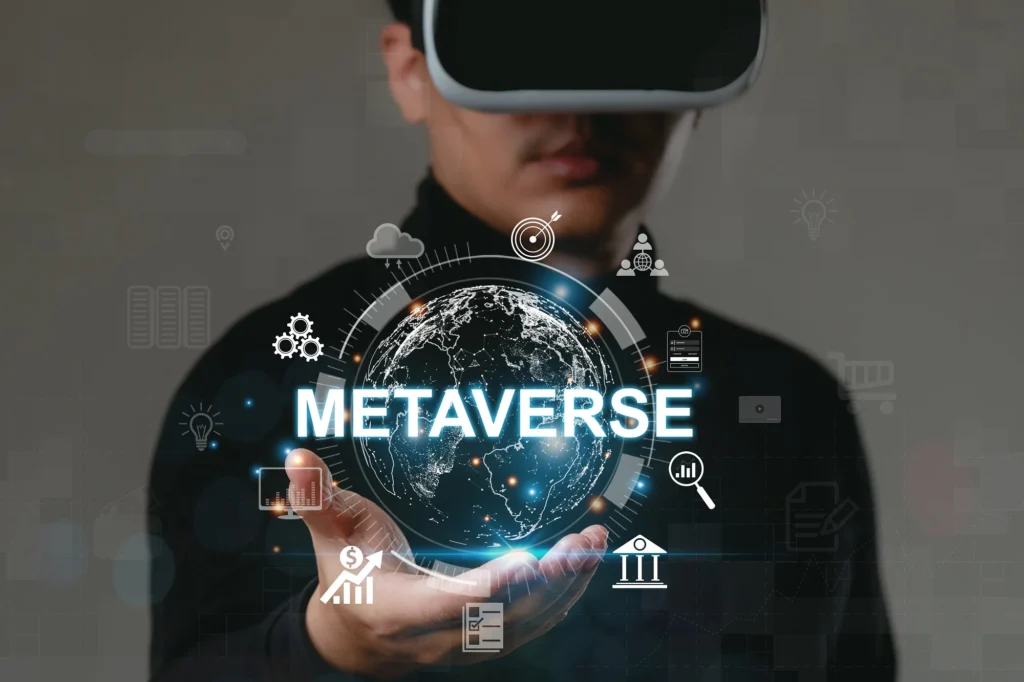
The Metaverse isn’t as new a concept as it might appear. First coined in Neal Stephenson’s 1992 novel “Snow Crash,” the idea depicted individuals exploring an online world using avatars. This notion of a digital retreat from reality resurfaced in the 2000s, especially with the game “Second Life.” Serving as an early example of what the Metaverse could become, “Second Life” provided a glimpse into living within a virtual space, where interactions were carried out via digital personas. It acts as an early sign of the kinds of experiences the broader Metaverse could offer.
Will The Metaverse Be Monopolized By Meta?
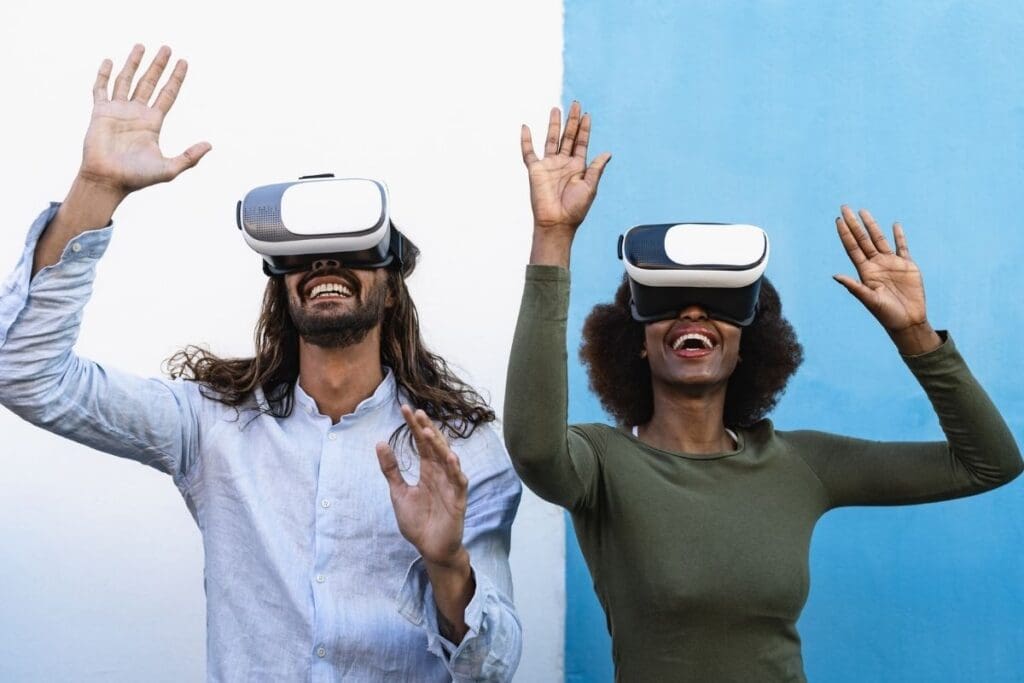
It’s not practical to expect that Meta will monopolize the entire technology landscape. Major companies such as Microsoft, Epic Games, and Nvidia are also advancing in the Metaverse, giving Meta a competitive advantage with its strategic pivot towards this immersive universe.
However, many experts believe that the Metaverse, similar to today’s internet, will not be controlled by a single company. Rather, it is expected to be a collaborative environment influenced by a range of stakeholders.
Do You Need A VR Headset Or AR Glasses To Access The Metaverse?
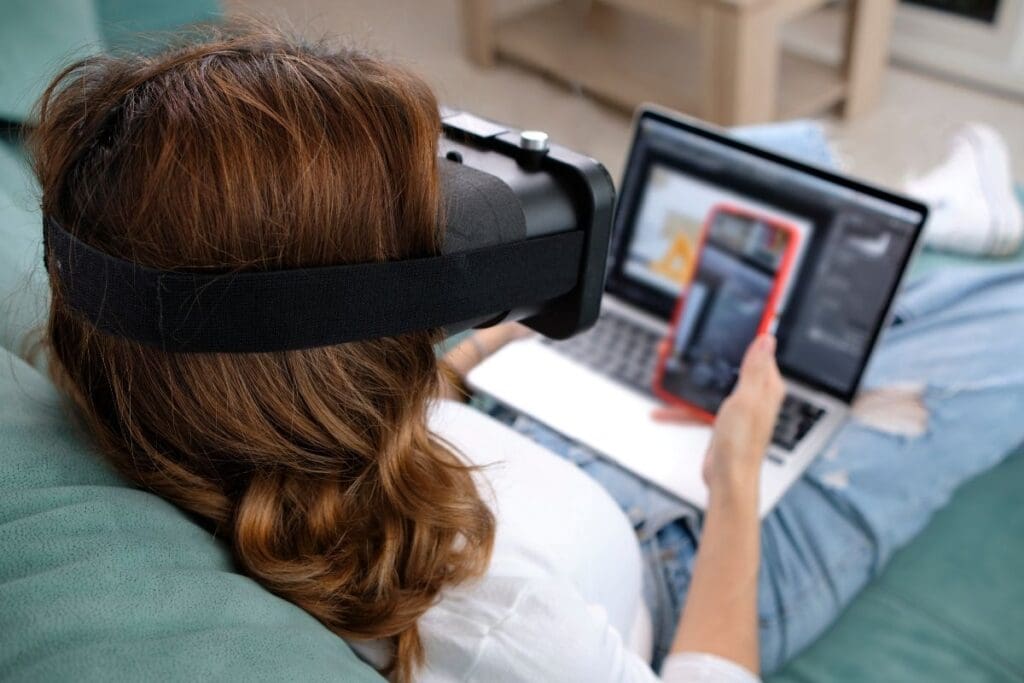
It’s a common misconception that entering the Metaverse requires wearing a VR headset, but this isn’t entirely accurate. Although some Metaverse platforms are designed for immersive technologies, popular ones like Decentraland and The Sandbox are accessible through standard devices such as desktops or smartphones. Therefore, the notion that Metaverse access is exclusively through VR is misleading.
Was The Metaverse Created For The Game World?
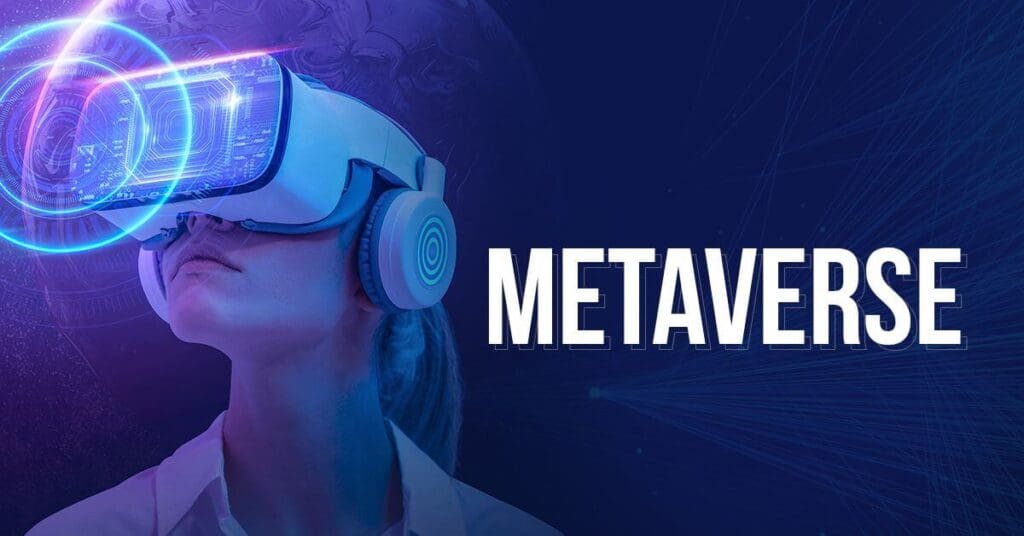
No, the concept of the Metaverse extends beyond just gaming, despite the gaming industry’s role in pioneering immersive environments. Within the Metaverse, avatars—representing users—can participate in a variety of activities that reflect real-life experiences, such as studying, working, socializing, and exploring.
From a business standpoint, companies from various industries are establishing their presence in this digital realm. A notable event was the first Metaverse Fashion Week in March, featuring brands like Tommy Hilfiger, DKNY, and Dolce & Gabbana. This event introduced a new shopping experience through 3D representations of traditional 2D products.
Will The Transition To The Metadata Store Be Easy?
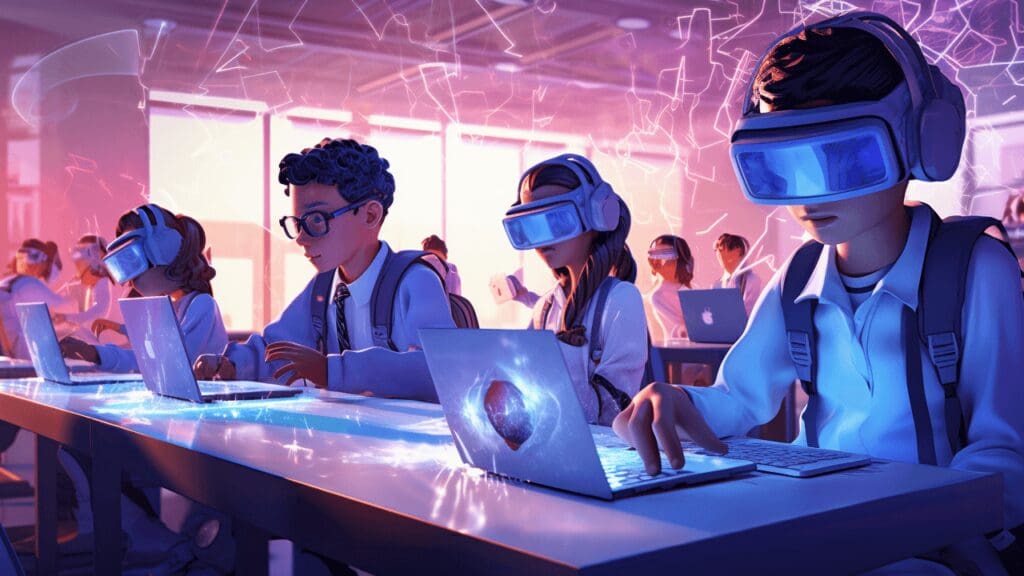
Unfortunately, the Metaverse, as conceptualized by leading tech companies, is not immediately accessible to the average consumer. Its complete realization depends on several technological advancements, including improvements in internet connectivity. In regions like Brazil, where 5G technology is just starting to roll out, it might take more than a decade before seamless participation in the Metaverse becomes a reality.
Additionally, the current computational power of data centers and personal computers represents another hurdle. The existing capabilities in computation, storage, and networking are not yet sufficient to fully support the extensive and complex vision of the Metaverse as envisioned by major tech firms.
If You Need To Collect Everything…
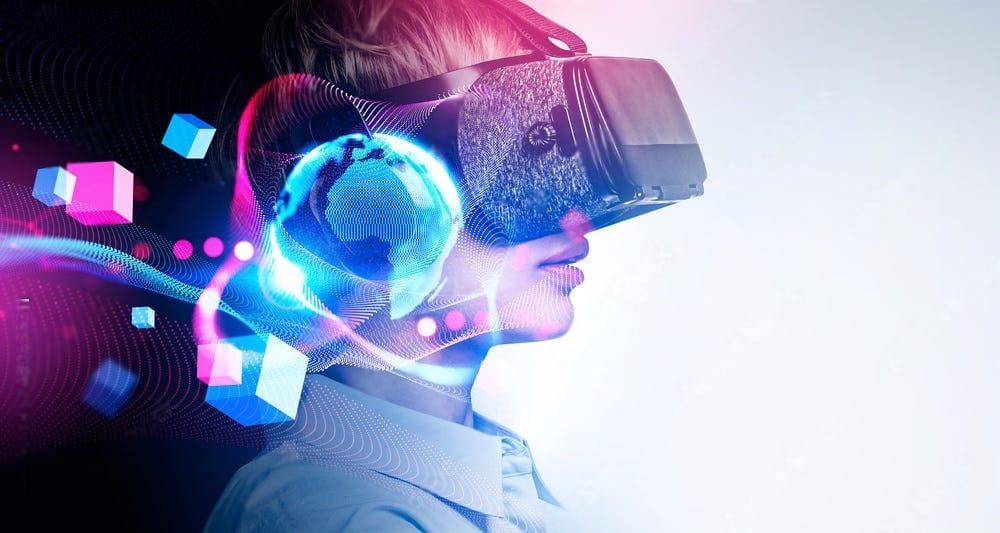
Indeed, although we may be several years away from a fully developed Metaverse, aspects of it are already intertwined with our daily routines. Nowadays, many of us work, socialize, learn, and entertain ourselves through remote and virtual means. The fundamental human needs for interaction, knowledge, employment, and leisure remain unchanged. However, the methods by which we satisfy these needs are constantly evolving alongside technological progress.
You may also like this content
Follow us on TWITTER (X) and be instantly informed about the latest developments…


